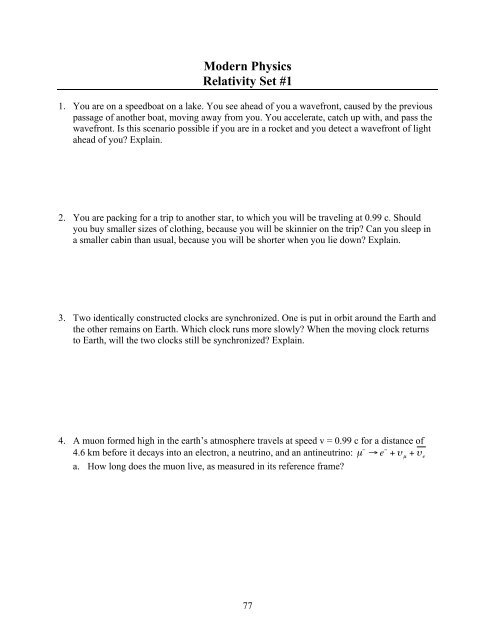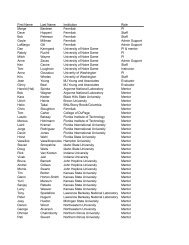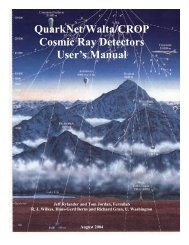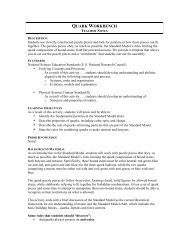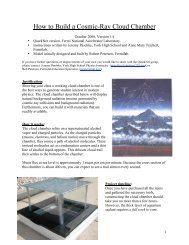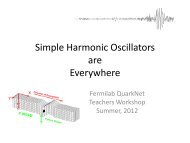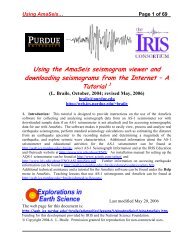Teaching Modern Physics - QuarkNet - Fermilab
Teaching Modern Physics - QuarkNet - Fermilab
Teaching Modern Physics - QuarkNet - Fermilab
You also want an ePaper? Increase the reach of your titles
YUMPU automatically turns print PDFs into web optimized ePapers that Google loves.
<strong>Modern</strong> <strong>Physics</strong><br />
Relativity Set #1<br />
1. You are on a speedboat on a lake. You see ahead of you a wavefront, caused by the previous<br />
passage of another boat, moving away from you. You accelerate, catch up with, and pass the<br />
wavefront. Is this scenario possible if you are in a rocket and you detect a wavefront of light<br />
ahead of you? Explain.<br />
2. You are packing for a trip to another star, to which you will be traveling at 0.99 c. Should<br />
you buy smaller sizes of clothing, because you will be skinnier on the trip? Can you sleep in<br />
a smaller cabin than usual, because you will be shorter when you lie down? Explain.<br />
3. Two identically constructed clocks are synchronized. One is put in orbit around the Earth and<br />
the other remains on Earth. Which clock runs more slowly? When the moving clock returns<br />
to Earth, will the two clocks still be synchronized? Explain.<br />
4. A muon formed high in the earth’s atmosphere travels at speed v = 0.99 c for a distance of<br />
4.6 km before it decays into an electron, a neutrino, and an antineutrino: µ − → e − + υ µ + υ e<br />
a. How long does the muon live, as measured in its reference frame?<br />
77<br />
€


